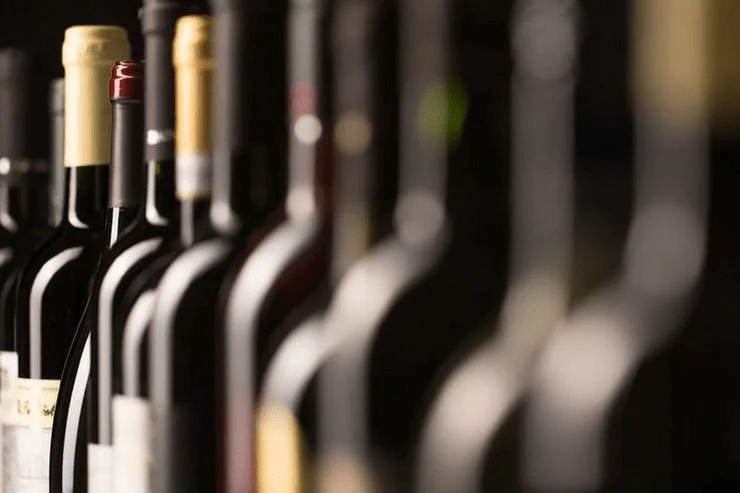
Увага! На сайті використовуються cookie файли.
The site uses cookie files
Даний сайт має вікове обмеження.
This site has age restrictions!
Я підтверджую, що мені, на жаль, давно виповнилося 18 років
The team behind the LWF23 Bottle Collection Initiative has concluded its research and is set to reveal its findings at next week’s London Wine Fair. The Initiative was a partnership between The Porto Protocol, Sustainable Wine Solutions and London Wine Fair which was launched at last year’s show. The Porto Protocol, whose mission is to catalyse climate action in the wine world, with Sustainable Wine Solutions, the UK experts in wine bottle return, challenged LWF to platform this initiative back in early 2023. The report has subsequently generated a call to action for the global wine industry: the number of bottles being produced must reduce. The “Reuse Ready Charter” will consider action points which the industry – throughout the supply chain – can adopt. The intention was to assess if – in the current state of play – a reusable supply chain could be a possibility and what would need to happen for this to become a reality.
The initial findings were based on 20,000 empty bottles collected from LWF exhibitors. A full audit was carried out on 1,017 bottles with a label-removability audit carried out on 2,000 bottles. The remaining 18,000 bottles were reused or recycled by Sustainable Wine Solutions which imports in bulk and bottles in the UK for on-trade distribution.
The backdrop to the initiative paints a concerning picture for the global wine industry: +32 billion wine bottles are produced annually, and with each bottle releasing an average of 600g of CO₂, the total carbon emissions equate to 19.8million tons per annum. The UK alone consumes an average 1.77bn bottles of wine per annum, most of which are single use.
As the wine industry shifts towards environmental sustainability, the widespread adoption of reusable wine bottles becomes crucial, particularly considering that single-use wine glass bottles account for 35% of the carbon footprint associated with each bottle of wine. This shift aims to drastically decrease the industry’s overall carbon footprint and embrace a holistic circular model throughout the entire value chain. On the other hand, reusable glass offers the greatest potential to reduce environmental impacts: reusable glass bottles produce 85% fewer carbon emissions than their single-use counterparts; 75% fewer carbon emissions than plastic (PET); and 57% fewer carbon emissions than aluminium cans. (Zero Waste Europe).

Although the initial intention was to audit all bottles in depth, we didn’t feel that it was needed since most bottles were different.
The good news is that the needle is shifting rapidly, and there is now growing consensus that reusing should become the gold standard. Michael Giannuzi, CEO of Verallia (Europe’s leading manufacturer of glass bottles for the drinks industry) said it well: “As glassmaking experts, we cannot afford to be smug about producing an infinitely recyclable material. That’s a great starting point for our industry. But glass is only sustainable when it is reused when and wherever possible and does in fact get recycled.” (Verallia white book).
However, the wide variation in bottle sizes and weights presents a significant barrier, complicating the scalability of schemes that are essential to make a reuse supply chain a reality. The results show “chaos on a big scale”, according to Muriel Chatel of Sustainable Wine Solutions. In the sample of 1,047 bottles, there were 947 different types, varying in terms of shape, weight and design. With only 7% of bottles being the same, this creates a significant challenge for reuse. The good news is that 73% of bottles can be reused, giving substantial opportunities for the industry.
With key global figures such as Jancis Robinson MW OBE campaigning for lighter bottles and alternative formats for everyday wines, and with younger generations increasingly demanding low-impact packaging, the glass bottle is at risk of losing its centre stage status. Already PET bottles have an increasing presence on supermarket shelves; there is a real risk of the bottle losing its central stage status.

The findings will be presented on Centre Stage from 12h45 to 13h45 on Wednesday, 22nd May: “Revealing the results of the waste bottle report and introducing the Reuse Ready Project”, hosted by Muriel Chatel (Sustainable Wine Solutions) and Marta Mendonça (The Porto Protocol). 2024 Session Schedule (londonwinefair.com). The partnership will call industry stakeholders to action on three key areas: an open letter to the glass manufacturers urging them to listen to the global wine industry, its biggest customer; leveraging corporate responsibility; and The Reuse Ready International Charter.
Head of London Wine Fair, Hannah Tovey, commented: “This report provides vital intelligence for the global wine industry. The industry’s consumption of glass is just not sustainable and whilst the solutions won’t come overnight, the Reuse Ready Charter provides a valuable tool for producers, glass manufacturers, buyers – everyone in the industry – willing (and able) to make a change.”

Adrian Bridge, CEO, The Porto Protocol, commented: “The 2023 Bottle Collection Initiative’s outcomes at the London Wine Fair highlight the pressing need for climate action in the wine industry. With billions of bottles produced yearly, the environmental impact is significant, underlining the urgency for sustainable practices. Our partnership with Sustainable Wine Solutions and the London Wine Fair demonstrates our dedication to fostering industry-wide change for a more sustainable future. By participating in initiatives like this, we collectively tackle these challenges and propel essential climate action within the wine world”

Muriel Chatel, Managing Director, Sustainable Wine Solutions, commented: “The reusable bottle is the silver bullet that will ensure that the glass bottle keeps its status as the container of choice for a long time because of its low impact and not simply because of romance and tradition. Already initiatives around the world by entrepreneurial pioneers are showing that a reusable supply chain is feasible, but only industry wide collaboration will allow it to scale.”
26.02.2026
08.02.2026